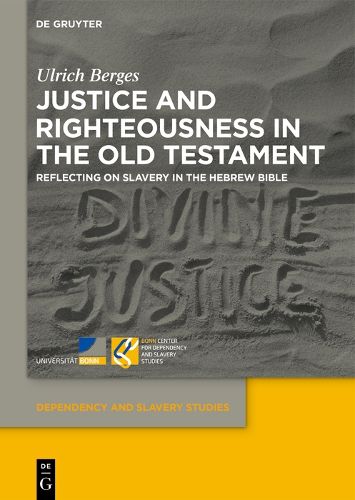Readings Newsletter
Become a Readings Member to make your shopping experience even easier.
Sign in or sign up for free!
You’re not far away from qualifying for FREE standard shipping within Australia
You’ve qualified for FREE standard shipping within Australia
The cart is loading…






The phenomena of slavery and asymmetrical dependencies in the writings of ancient Israel cannot be adequately addressed without also looking at the discourses on divine and human justice. Only then does the position of the slaves in their uniqueness become clear, because they are almost completely left out of the moral demand for justice that otherwise applies to the poor, widows, orphans and strangers. Their status as property, which only in exceptional cases allowed them to be considered as subjects with personal rights, dominates the discourse. On a theological level, the phenomenon of slavery also influenced the Old Testament image of God, as YHWH himself became the owner of his people. Liberation from slavery in Egypt lead not to freedom, but to permanent dependency on the liberating God. However, radical dependency on YHWH also means that the divine master must protect the righteous. Otherwise, YHWH would degenerate into an arbitrary tyrant. The demand for justice binds the divine sovereign. If one examines the discourses of justice in the Hebrew Bible about the position of slaves, their deficits become particularly visible. This should urge caution in declaring the biblical writings to be the forerunners of human rights.
$9.00 standard shipping within Australia
FREE standard shipping within Australia for orders over $100.00
Express & International shipping calculated at checkout
The phenomena of slavery and asymmetrical dependencies in the writings of ancient Israel cannot be adequately addressed without also looking at the discourses on divine and human justice. Only then does the position of the slaves in their uniqueness become clear, because they are almost completely left out of the moral demand for justice that otherwise applies to the poor, widows, orphans and strangers. Their status as property, which only in exceptional cases allowed them to be considered as subjects with personal rights, dominates the discourse. On a theological level, the phenomenon of slavery also influenced the Old Testament image of God, as YHWH himself became the owner of his people. Liberation from slavery in Egypt lead not to freedom, but to permanent dependency on the liberating God. However, radical dependency on YHWH also means that the divine master must protect the righteous. Otherwise, YHWH would degenerate into an arbitrary tyrant. The demand for justice binds the divine sovereign. If one examines the discourses of justice in the Hebrew Bible about the position of slaves, their deficits become particularly visible. This should urge caution in declaring the biblical writings to be the forerunners of human rights.